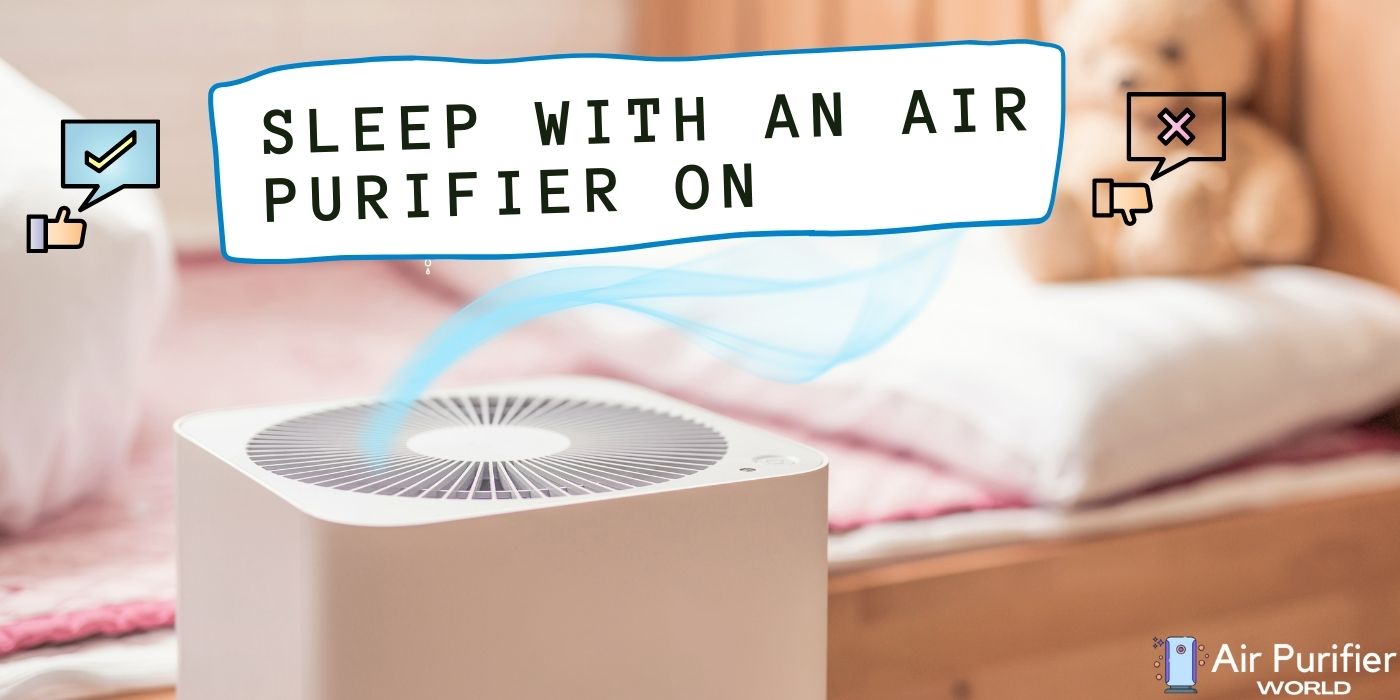There is a lot of debate over whether or not you should sleep with an air purifier on. Some people swear by it, while others think it’s a waste of time. So, what’s the truth? Should you sleep with an air purifier on or not? In this blog post, we will explore the pros and cons of sleeping with an air purifier and help you make the decision for yourself!
The Pros of Sleeping with an Air Purifier On
There are many benefits to sleeping with an air purifier on. Here are just a few:
- You’ll wake up feeling more refreshed and energized.
- You’ll breathe easier and experience less congestion.
- You’ll have improved air quality in your home, which is great for your health!
The Cons of Sleeping with an Air Purifier On
There are a few drawbacks to sleeping with an air purifier on as well. Here are the main ones:
- It can be noisy, which may disrupt your sleep.
- It can be expensive to run, depending on the model you choose.
- It can take up space in your bedroom.
So, should you sleep with an air purifier on? That’s really up to you! If you’re someone who is sensitive to noise, then it might not be the best idea. But if you don’t mind a little white noise and want the benefits of an air purifier, then go for it! Whichever decision you make, we hope that this blog post helped shed some light on the pros and cons of sleeping with an air purifier on.
Should I leave my air purifier on all night?
That’s a question we get asked frequently. The answer is it depends on the air purifier. Some air purifiers have filters that need to be replaced every few months, and if you leave the air purifier on all night, those filters will wear out more quickly. Other air purifiers have sensors that detect the level of pollution in the air and will automatically turn off when the air quality is good enough. So, if you’re not sure whether or not your air purifier should be left on all night, check your manual or contact the manufacturer for more information.
Is it better to sleep next to an air purifier or further away?
That’s up to you! Some people find that sleeping next to an air purifier helps them breathe easier and sleep better, while others find the noise disruptive. Experiment and see what works best for you. 🙂
Can babies sleep with the air purifier on?
It’s generally safe for babies to sleep with an air purifier on, but you should always consult with your child’s pediatrician first. They may have specific recommendations based on your baby’s health and medical history.
Do I Need an Air Purifier with “Sleep Mode”?
Some air purifiers come with a sleep mode which will make them quieter and save on energy. Air purifiers work by drawing in air from the surrounding environment and passing it through a filter. The filter catches particles such as dust, pollen, smoke, and pet dander. So generally speaking air purifiers do work while you are asleep however if the noise from the machine is disruptive then it may be best not to use it at night. Consult your air purifier’s manual or the manufacturer if you are unsure.
What is the best air purifier for sleep?
There is no one-size-fits-all answer to this question as everyone’s needs are different. Some people may find that an air purifier with a sleep mode setting helps reduce noise levels and save energy. Others may prefer an air purifier that doesn’t make much noise but still does a good job of cleaning the air. Ultimately, the best air purifier for sleep is the one that meets your specific needs and preferences. Be sure to read product reviews and compare features before making your purchase!
What is the Difference Between an Air Purifier and a Humidifier?
An air purifier cleans the air by removing particles such as dust, pollen, and smoke. A humidifier adds moisture to the air, which can help relieve congestion, dry skin, and other respiratory problems. Both air purifiers and humidifiers can improve the air quality in your home, but they do so in different ways.
If you have asthma or allergies, an air purifier can help reduce your symptoms by removing irritants from the air. If you have a cold or the flu, a humidifier can help relieve congestion by adding moisture to the dry air. Ultimately, whether you need an air purifier or a humidifier (or both!) depends on your individual needs and health concerns. So, be sure to talk to your doctor before making a purchase!
Thank you for reading! We hope this blog post was helpful. If you have any additional questions, please don’t hesitate to contact us. 🙂


Leave a Reply
You must be logged in to post a comment.